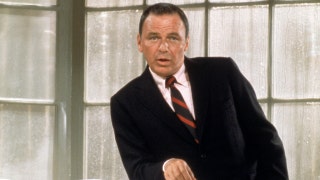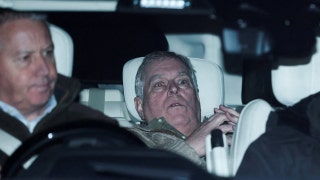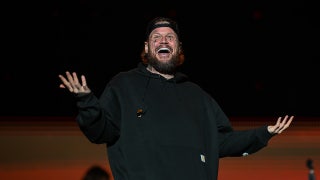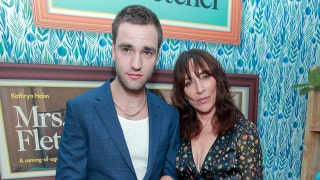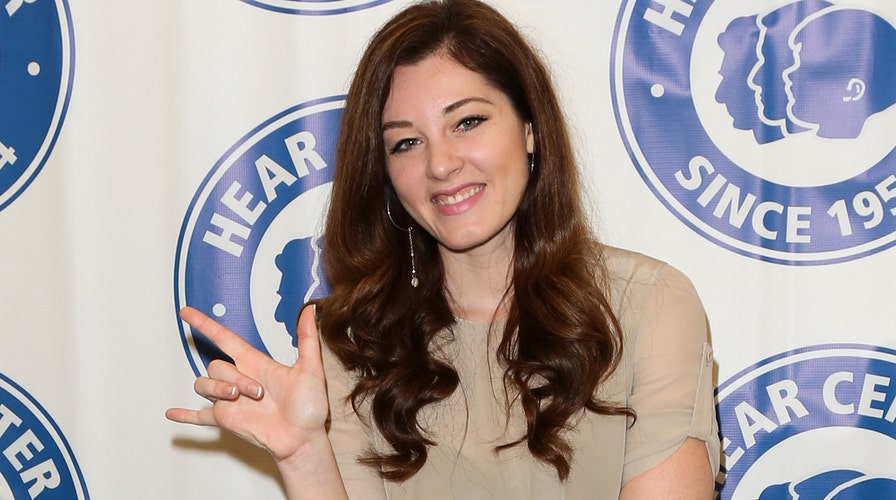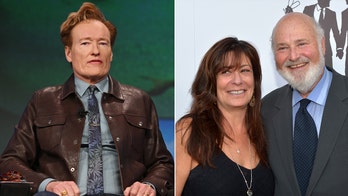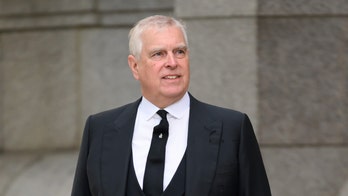Fox News Flash top entertainment headlines for December 22
Fox News Flash top entertainment and celebrity headlines are here. Check out what's clicking today in entertainment.
EXCLUSIVE: Mandy Harvey is changing the world in a big way.
The former "America’s Got Talent" finalist shocked the world in 2017 when she received a coveted "Golden Buzzer" from none other than Simon Cowell with her performance of an original song she wrote called "Try."
But what put Harvey over the top and catapulted her into stardom is the fact that as a singer-songwriter, author and speaker, Harvey is deaf. Collectively Harvey’s "AGT" Golden Buzzer audition has received over 500 million views.
The 32-year-old songstress was 18 when she lost her hearing as a result of Ehlers-Danlos syndrome (EDS). According to Mayo Clinic, Ehlers-Danlos syndrome "is a group of inherited disorders that affect your connective tissues."
'AMERICA'S GOT TALENT' JUDGES SPEAK OUT ABOUT SIMON COWELL'S INJURY: 'WE MISS OUR BOSS'
Harvey has since been dedicated to serving as an advocate for the deaf and disabled community, which can be seen by her many acts including her partnerships with nonprofit organizations such as No Barriers USA as well as her work for projects like "Music: Not Impossible" with Not Impossible Labs.
Harvey spoke with Fox News about how her life has changed since her monumental showing on "AGT," the propriety technology she developed in partnership with electronic component distributor Avnet and Not Impossible Labs -- which aims to bring everyone the ability to experience music the same way she does through vibration -- and how she continues to inspire people throughout the world, whether or not they have a disability.
Fox News: Take us back to the moment you received that Golden Buzzer from Simon Cowell on "America’s Got Talent."
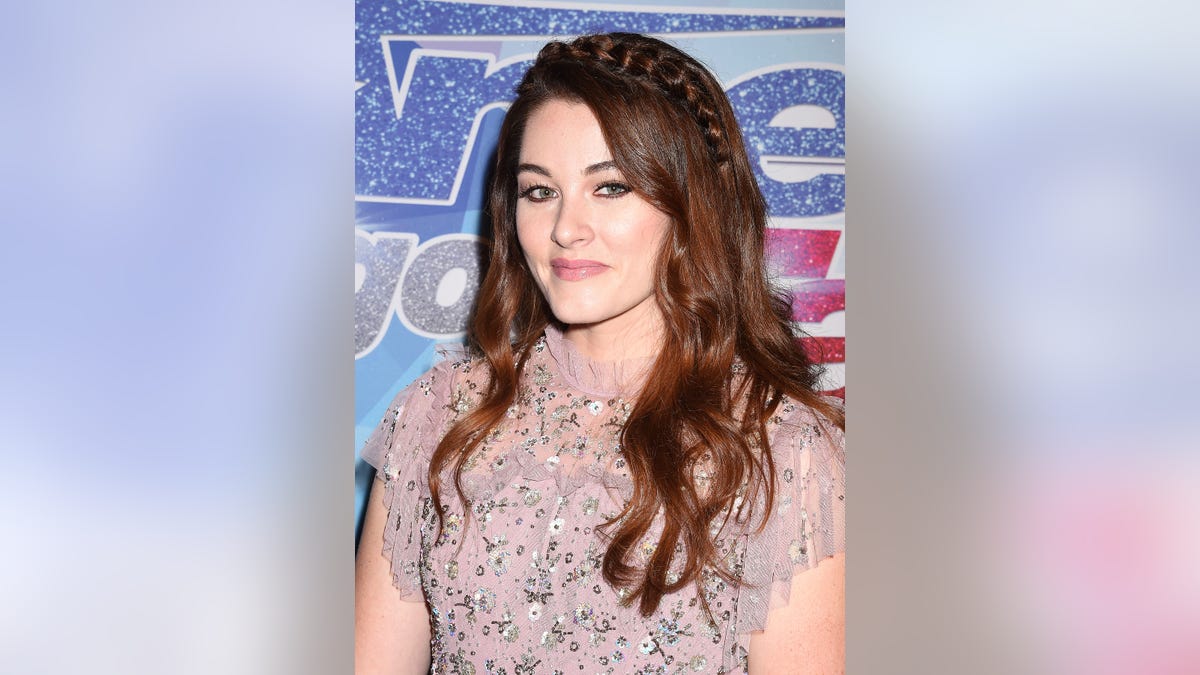
Mandy Harvey's 'America's Got Talent' Season 12 audition has been seen more than 500 million times. (Photo by Jeffrey Mayer/WireImage)
Mandy Harvey: Well, just five seconds before that buzzer happened, I was finishing the song. There's a part right in the last chorus when I start singing 'Try' and I giggle as I'm singing and it's because everybody stood up and started cheering and clapping and stomping their feet really loudly. And it was shaking -- the stage -- and causing vibrations to a point where I couldn't feel the band anymore. And so in my mind, I was just like, I just went rogue. I wish people would stop messing me up.
And it's just really kind of funny. I was so trying to focus on what was going on and it was the first night of filming so they were dealing with all these tech issues and glitches and stuff and they were still kind of working things out. And so initially when they had tested the golden buzzer, the button didn't even work. And so they're just like -- there was this moment of, 'It doesn't matter. It's the first night of filming. I'm not going to hit it.'
MEGHAN MARKLE SHOCKS 'AMERICA'S GOT TALENT' FINALE VIEWERS WITH SURPRISE APPEARANCE FOR CONTESTANT
So there was kind of this, 'Well, it's not going to happen anyway.' But that's not my goal. My goal was to go out there and to encourage people to maybe see themselves and see the situations that they're in and realize that you can move forward past failure, but you can chase your dreams and also start conversations and change perspectives of what disabilities look like because you're not just broken balls of mesh that are subpar and subhuman -- you can accomplish big things.
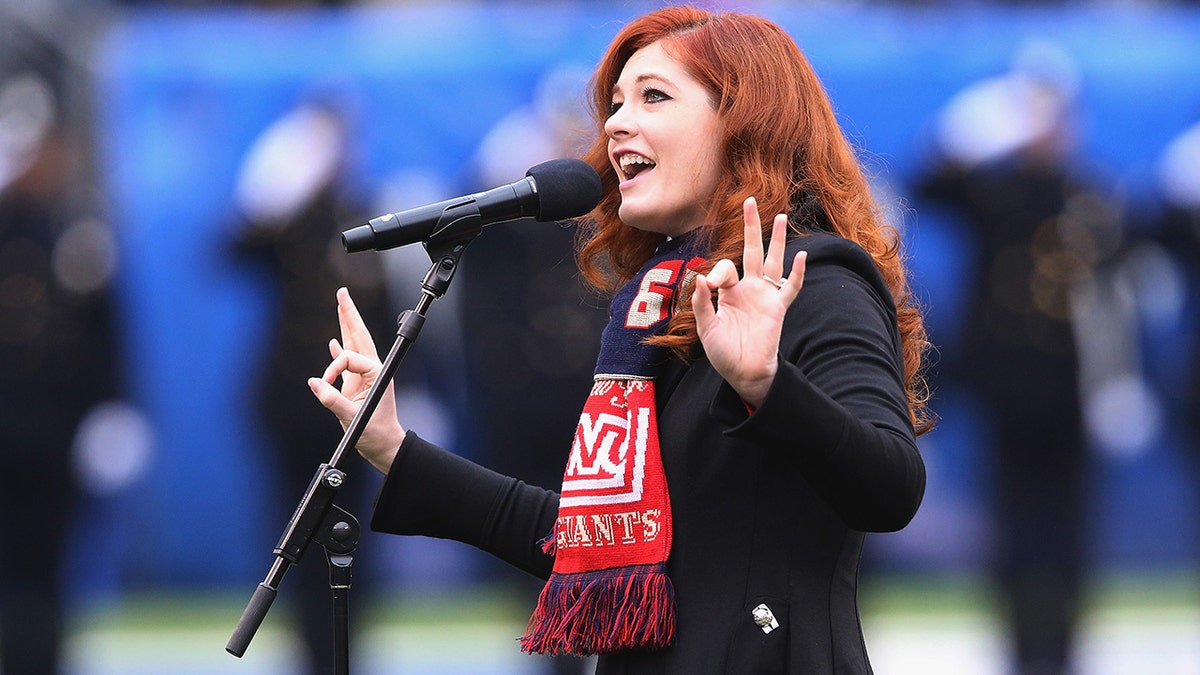
Mandy Harvey has 339,000 monthly Spotify listeners and her music is streamed more than 5 million times per month. (Photo by Al Pereira/Getty Images)
Fox News: How is your life changed since "America's Got Talent?"
Harvey: My life changed in the way that I have more ability to do the things that I've always aimed to do. And I mean that because it has always been my goal to work with companies like Avnet and Not Impossible. It's always been my goal to write children's books. It's always been my goal to encourage people. And it has given me the profound blessing to be able to do that on a larger scale and to allow people to somewhat take me more seriously because it's a weird thing to say that you're putting stock and hope in a person that you don't understand.
My life changed in the way that I have more ability to do the things that I've always aimed to do.
And I think that has been a huge thing that I'm really glad that I faced my fears to do it. And I would not take back that experience for anything in the world. And just the conversations that started and the change, the ripple effect that happened, schools having ASL (American Sign Language) be part of the curriculum across the board, there was a giant vote in Brazil to allow people with disabilities to be part of the mainstream school system. And my picture was plastered all over Brazil and it wasn't the reason why it happened, but it was just one more push. And to be a part of one more push, I'll take it every day.
Fox News: Many artists say they can recognize a hit the moment they hear one, but how do recognize a good record when you can’t hear what it sounds like?
Harvey: Well, I mean, it's kind of a beautiful situation, slightly tragic if you look at it on the negative side. But let's look at the beautiful side. The beautiful side is if I'm riding a car with somebody and they're listening to music -- because typically I don't really listen to the radio. What's the point? But when I do or when I have music playing, I'm mostly just focusing on the rhythm and the beat and kind of just the overall dynamics that you can feel and everything else, I don't really know what it is.
So some songs that people hate or might think are garbage, I write my own song in it because I have nothing else to pull from. So it gives you an incredible freedom to never getting bored with a song because it can be anything that I want it to be. I like stuff that has changes and as the rhythm moves -- not just a beat, but it has different kinds of beats and pauses and then starts again because then it's interesting to me and not just stagnant. And so, for me I think that's what I look for is something that I'm not necessarily expecting all the time.
[Being deaf and singing] is nice that in some way I will always sound like me instead of me trying to sound like somebody else. The only thing I can do is sound like me.
Fox News: You have a quote that "looking at the ocean in silence gives you the ability to create whatever you want it to be." Do you feel you have the ultimate freedom to create because you have an innate sense to feel things differently?
Harvey: I do. Honestly, it's been the biggest benefit to performing because I don't have the ability to hear myself and pick myself apart and judge myself and criticize myself to a point where I don't want to even sing anymore. I have the ultimate freedom from judgment of myself. And in addition to that, it's nice that in some way I will always sound like me instead of me trying to sound like somebody else. The only thing I can do is sound like me.

Mandy Harvey's career has skyrocketed since her viral performance on 'America's Got Talent.' (Nathan Congleton/NBCU Photo Bank/NBCUniversal via Getty Images)
Fox News: What is Mandy Harvey's secret power?
Harvey: Empathy.
I feel like it's something that I've had ever since I was very, very, very young is that I have an ability to read a person's face and kind of understand their mood and how they're feeling and you know, when you can lock eyes with a person from across the room for just a split second and just know that something powerful happened in their life and they need a hug. I remember being that kid who was just really quiet and I paid attention.
'AGT' JUDGE HOWIE MANDEL CALLS MEDIC AFTER PERFORMER CATCHES FIRE DURING STUNT
And I don't feel like it is necessarily a superpower as much as a learned skill because feeling vibrations -- yeah, I mean, what I do is high level, but I feel like with anything I've put in more than my 10,000 hours of focusing on vibrations and you have the ability to do it, but you have your ears holding you back because it's easy. And so I don't. And so I thought simply had to do my 10, 20 and 30,000 hours -- it just keeps going and it's the same with paying attention visually. I've always paid attention to people and I've always paid attention to the fact that I want to connect emotionally with people.
Fox News: Other than the ukulele, your only other "instrument" is your voice – do you believe you’re perfectly tuned?
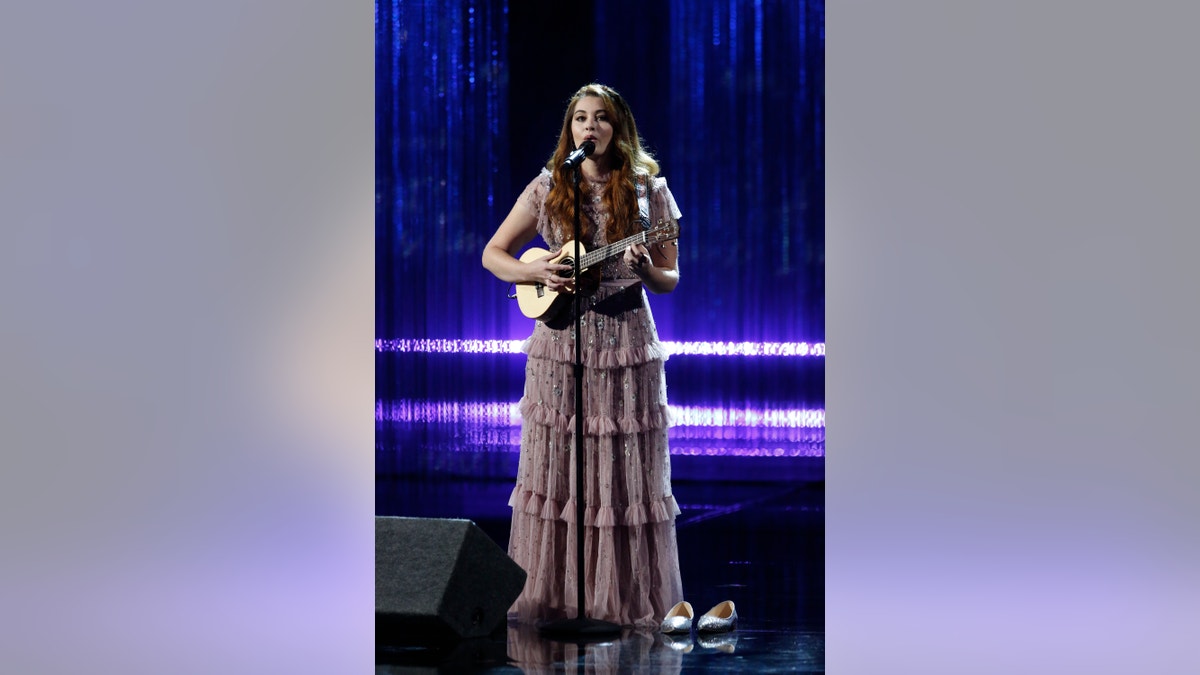
Deaf singer-songwriter Mandy Harvey removes her shoes so that she can feel the vibrations of the music as she performs. (Trae Patton/NBCU Photo Bank/NBCUniversal via Getty Images)
Harvey: No, I mean, I can see it, but I don't really think of myself too much. You know, I just am working so hard that I don't really step back and think it's that crazy because I feel like what I would love to do is encourage so many different people, especially people who are hard of hearing and deaf, who want to be brilliant musicians.
Like I want to show at least my journey so they can construct their own to a point where it's not something worth writing about that there's another deaf singer. I want to do my job so well and encourage so many deaf singers out there that I lose my job in a sense -- that would be the ultimate goal. So if I have crafted myself into a perfectly tuned one-person instrument, I'll take the compliment. But I'm not going to rest easy on that because the work is still not done. You know, there's always better ways and new instruments and more to learn.
GABRIELLE UNION, ‘AMERICA’S GOT TALENT’ REACH SETTLEMENT AFTER WORKPLACE TOXICITY ALLEGATIONS
Fox News: With what you’re doing with "Music: Not Impossible" -- creating something that will change the world for so many people -- what emotional feeling do you get from that?
Harvey: That it’s not enough. I mean, it’s everything. I'll tell you this, it's been such an honor to be able to have done something like 'AGT' and to have touched people all over the world. I get people who come up to me at every performance that I had ever done, not say a word and just break down and cry and then just need a hug. It's like -- the fact that that is an existence that's real -- means that I'm not done and there's so many different things to do.

'America's Got Talent' finalist Mandy Harvey has co-authored a customizable children's book for kids with or without a disability. (Photo by Paul Archuleta/Getty Images)
The statistics right now -- I mean, even just during COVID-19 for joblessness and unemployment are staggering. But if you look at the percentage for people with disabilities versus people who don't have a publicly announced disability, it's off the charts unlevel. And so, that being real -- yes, I get to be a part of really cool technology to be able to feel music. But I want to be able to be a part of a movement that allows people to accept people for who they are and to have true integration of everybody on a playing field, that is level, and that is something that will not be fully accomplished in my lifetime. It would be great if it does, but I think prejudice takes a long time to bleed out.
CLICK HERE TO SIGN UP FOR OUR ENTERTAINMENT NEWSLETTER
There's always going to be another project that I want to work on. And right now, what I've been working on is really encouraging businesses on the top side, first, like CEO-levels, to bleed down, to hire people with disabilities and to have more communication with their staff, because it's been proven that the more diverse we are, the more successful the business is and the more successful we are as people, but also to give people those choices and those opportunities like having that vibrating technology -- that should be available so that this group of people gets to experience a concert and another group doesn't. We get to level the playing field.
I recently co-authored a children's book, and the really cool thing about this children's book is that it's customizable to every single child because only .5% -- less than 1% of children's literature includes a child with a disability. And that is a staggering number.
And how many people do you know with a disability and even just your family? If your brother could have seen himself in a book when he was a child that would have changed everything. How many books have you ever thought of or seen that had a kid with Cerebral Palsy? I don't know any. And to be able to say, 'You know what? We can't write a billion books for a billion differences but what we can do is we can write a book and then we can have their images become the hero. They can become the hero of the story.' And then in that way, it can be an ever-growing, ever-changing and evolving story to include as many people as possible.
CLICK HERE TO GET THE FOX NEWS APP
Fox News: When you're putting all this proprietary technology together and you're working with Avnet, for someone who doesn't have a hard of hearing disability or isn't deaf, is there a way that others can feel music the same way you do?
Harvey: Everybody benefits from it because feeling vibrations and stuff is just paying attention to something that you have the ability to do. It's just not as easy for you to ignore the other side. This is experiencing music in a different way. And for me, I would love for people to experience that kind of technology and see books like this all the time because it becomes normal and then you start to open your eyes a little bit more on seeing other people's points of view in the world that you live in and that in itself will help bring us together and become closer to being truly across the board, accessible and integrated.




